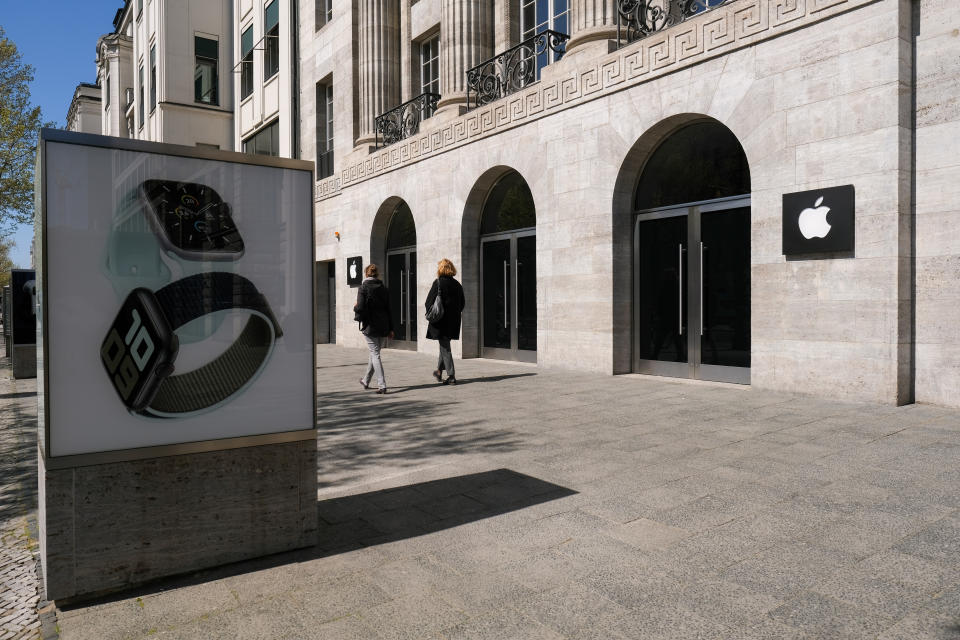Apple Q2 earnings rise on App Store, Apple TV
Apple reported its Q2 2020 earnings on Thursday, with services and wearables buoying the company’s bottom line amid the coronavirus pandemic.
Here’s how the company performed in the quarter compared to analysts’ expectations as compiled by Bloomberg.
Revenue: $58.3 billion versus $54.25 billion expected
Earnings per share: $2.55 versus $2.23 expected
The stock was up slightly in after hours trading.
“Despite COVID-19’s unprecedented global impact, we’re proud to report that Apple grew for the quarter, driven by an all-time record in Services and a quarterly record for Wearables,” CEO Tim Cook said in a statement.
For the quarter, iPhone revenue was off 7.2%, from $31 billion in Q2 2019 to $29 billion in Q2 2020. But Services sales were up from $11.5 billion to $13.3 billion in the quarter, while the Wearables segment, which includes the company’s popular AirPods and Apple Watch, was up from $5.1 billion last year to $6.3 billion.
“Our active installed base of devices reached an all-time high in all of our geographic segments and all major product categories,” CFO Luca Maestri said in a statement. “We also generated operating cash flow of $13.3 billion during the quarter, up $2.2 billion over a year ago.”
Unlike other high-flying tech stocks, Apple (AAPL) has been especially susceptible to the supply chain disruptions caused by the virus, and the economic shock that has resulted. The firm pulled its initial guidance for Q2 in February as China extended its Lunar New Year holiday in an attempt to keep the coronavirus at bay, cutting off the engine of the iPhone maker’s supply chain.
Apple also shuttered its stores in mainland China to help stanch the spread of the virus, and didn’t reopen them until March. That same month, as the virus marched across the rest of the world, the company closed all of its stores with the exception of those in mainland China.

Apple is expected to launch its next-generation iPhone, equipped with 5G cellular connectivity sometime in September, though availability could be delayed a month, according to The Wall Street Journal.
That model would carry Apple through the remainder of 2020, including the all-important holiday season, and into 2021. The inclusion of 5G has led analysts to predict a sales supercycle for the iPhone maker, with more consumers than normal deciding to upgrade their devices.
But whether those predictions still come to fruition depends on the economy coming back online, and people getting back to work before those phones hit the market.
The tech industry’s biggest names are reporting this week, with Google (GOOG, GOOGL) among the first to demonstrate how the pandemic and economic downturn have impacted its business. The company reported that ad sales slowed toward the end of March, and said the quarter was a “tale of two quarters,” as the first half was more in line with what the firm originally anticipated.
However, on Wednesday Microsoft (MSFT) reported strong earnings showing that its cloud unit grew 27% year-over-year in the quarter. Amazon on Thursday reported higher Q1 sales on coronavirus-driven spending, but says it will be hit with $4 billion in costs in Q2.
More from Dan:
Got a tip? Email Daniel Howley at danielphowley@protonmail.com or dhowley@yahoofinance.com, and follow him on Twitter at @DanielHowley.
Follow Yahoo Finance on Twitter, Facebook, Instagram, Flipboard, SmartNews, LinkedIn, YouTube, and reddit
